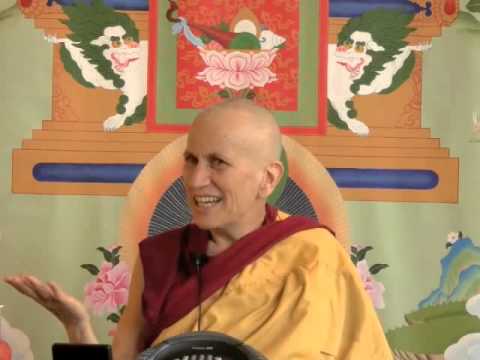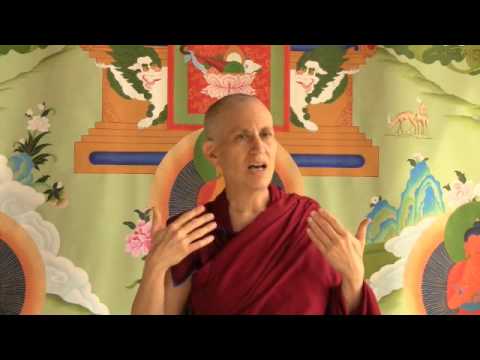Six root afflictions: Wrong views
Stages of the Path #107: The Second Noble Truth
Part of a series of Bodhisattva's Breakfast Corner talks on the Stages of the Path (or Lamrim) as described in the Guru Puja text by Panchen Lama I Lobsang Chokyi Gyaltsen.
Let’s continue talking about the five kinds of afflicted views, which are part of the root afflictions that keep us bound in samsara. We talked about the view of personal identity and then the view of the two extremes: nihilism and eternalism. The third afflictive view is wrong views. In the sutras, the Buddha spoke a lot about the wrong views.
If you read the Pali canon, there are many, many sutras that speak about wrong views. The reason for that is if you have wrong views, it’s very difficult to gain any kind of realizations because what you understand conceptually before you meditate influences what you realize non-conceptually when you meditate. If you don’t have the correct view beforehand then realizing that in your meditation isn’t going to happen. Also, if you have a lot of wrong views then it’s very easy to go off in all sorts of ethically disastrous ways, which make a huge mess in life.
I thought I’d read you a little bit of one of the first sutras; I think it’s in the Longer Discourses. It’s called The Supreme Net Sutra or the Brahmajala Sutta. This is not the same Brahmajala Sutra as in the Mahayana canon, because that Brahmajala Sutra talks about the bodhisattva vows. It’s the same sutra name but different contents. Anyway, in the Pali canon, they talk about 62 wrong kinds of views. [laughter] And then the Buddha puts them in various different groups. I’m just reading you this passage that is condensing the kind of groups that he puts them in.
Six kinds of wrong views
The eternalists, who proclaim the eternity of the self and the world.
So, they think everything is truly existent, solid, concrete.
Those who are partly eternalist and partly non-eternalist, who proclaim the partial eternity and the partial non-eternity of the self and the world.
They’re the half-half-ists. They think things are somewhat eternal but in other situations they aren’t.
The finites and the infinites, who proclaim the finitude or infinitude of the world.
Again, this is based on grasping things as truly existent.
The eel wigglers, who resort to evasive statements.
[laughter] Just as it is hard to hold on to an eel, it’s hard to get an answer when you ask these people, “What is it you’re really saying? What is it you really believe?” They say things like: “It’s just incomprehensible. You have to experience it. In this case, it’s this. In that case, it’s that.” It’s some kind of evasive answer.
The chance originationists, who proclaim the chance origin of self and the world.
So, these people think that out of nowhere the world appears, out of nowhere living beings appear.
Those who are speculators about the past, having fixed views about the past.
They have all sorts of theories about the past, maybe like you can go in a time machine and relive the past or something like that.
Venerable Thubten Chodron
Venerable Chodron emphasizes the practical application of Buddha’s teachings in our daily lives and is especially skilled at explaining them in ways easily understood and practiced by Westerners. She is well known for her warm, humorous, and lucid teachings. She was ordained as a Buddhist nun in 1977 by Kyabje Ling Rinpoche in Dharamsala, India, and in 1986 she received bhikshuni (full) ordination in Taiwan. Read her full bio.


